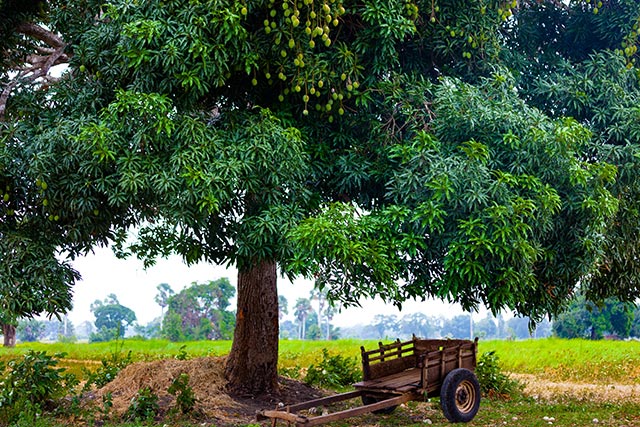
Iron is used by most metabolic processes in the body. A deficiency of this important mineral is considered to be a serious disease. For one, iron deficiency can lead to anemia, where the blood has low levels of red blood cells – a condition that affects one out of eight people in the world. Many of those who are affected are preschoolers, pregnant women, and older men.
In addition to causing anemia, iron deficiency also decreases the effectiveness of disaccharidases. These enzymes are responsible for breaking down complex sugars into simpler substances that can be absorbed by the body. Lower disaccharidase activity can cause weight loss.
In developing African countries, iron deficiency anemia is traditionally treated with medicinal plants. One of these plants is Mangifera indica, the mango tree.
The efficacy of an extract drawn from the bark of the tree has been verified by an earlier study led by Nwibani Nwinuka of the University of Port Harcourt. He reported that the crude extract possessed anti-anemic properties.
Researchers from the University of Ilorin (Unilorin) chose to investigate the minimum dose of the extract that could elicit anti-anemic properties. They also hoped to measure its effect on several disaccharidases. (Related: Good for far more than just smoothies, mango has a fascinating history.)
The Unilorin researchers prepared an aqueous extract from fresh stem bark and leaves of the mango tree. They tested the efficacy of the extract using a rat model. Half of the rats were given an iron-sufficient diet, while the rest received an iron-deficient diet.
After seven days, iron deficiency symptoms appeared in the rats with iron-deficient diets. Several animals from both groups were sacrificed to determine their hematological indexes and set baselines for later tests.
The iron-deficient rats were divided into several groups. One group served as the negative control; they retained their iron-deficient diets over the next two weeks. Another group of deficient rats received an iron supplement to amend their lack of iron. This group served as a reference. The third, fourth, and fifth groups received different dosages of mango tree bark extract. The doses were either 25, 50, or 75 milligrams per kilogram (mg/kg) of extract. The healthy rats continued to receive their iron-sufficient feed for the rest of the experiment.
At the end of the trial, blood samples were taken from the animals. They were analyzed for hemoglobin content, packed cell volume, red blood cell count, and white blood cell count. The activity levels of sucrase and lactase – two essential disaccharidases – were also determined.
The Unilorin researchers reported that iron-deficient rats suffered from lower levels of hemoglobin, packed cells, and red blood cells. These three are indicators of the amount of iron in the body. The deficient rats also showed lower activity levels of lactase and sucrase in the small intestines.
Hemoglobin, packed cell, and red blood cell levels went up for the animals that received the mango tree bark extract. When compared to rats that were supplemented with iron, the 75 mg/kg dose exceeded the effectiveness of the supplements. Furthermore, the rats treated with the extract also showed improvements in lactase and sucrase levels.
Based on these findings, the researchers suggest 25 mg/kg as a tentative safe dosage for preventing iron deficiency anemia. They also recommend additional testing to determine the potential toxicity of extracts made from the stem bark of the mango tree.
Visit HealingArts.news for more articles on natural ways of preventing iron deficiency anemia.
Sources include:
PDFs.SemanticScholar.org [PDF]
Please contact us for more information.























